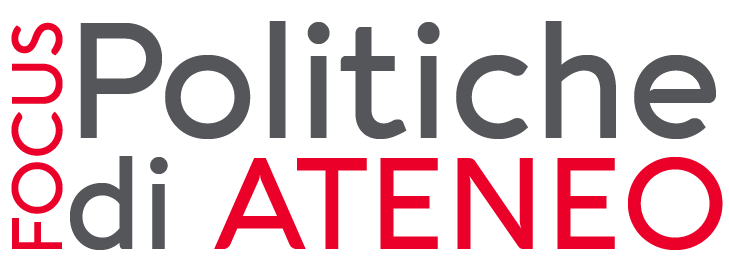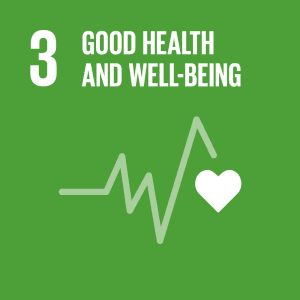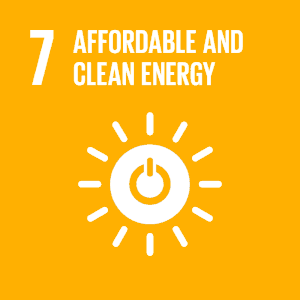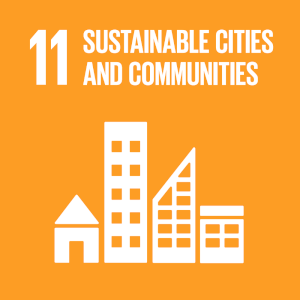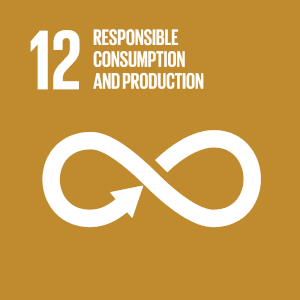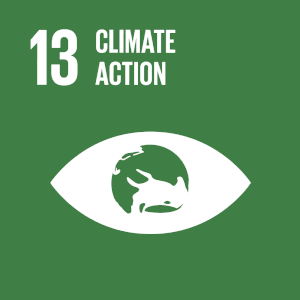Since 2016, the university has established the Green Office UniToGO to promote sustainable development and mitigate the environmental impact of the university.
The UniTo Green Office is divided into six working groups each focusing on a specific theme:
Green Public Procurement
Food
Energy
Mobility
Waste
Climate changes
Three co-ordinations in turn support the groups:
Communication and Engagement
Green Spaces
Mitigation and Adaptation Plans
In terms of promoting environmental sustainability, in 2023, UniTo achieved excellent results, as demonstrated by its ranking in the Green Metric, created by Universitas Indonesia, which assesses the environmental and social sustainability of university campuses based on actions implemented to reduce consumption and improve environmental sustainability, as well as to promote and carry out research and training on the topic: this year UniTo ranked 18th worldwide and 3rd among Italian universities. The University has also achieved excellent rankings in the second edition of the new British QS Sustainability Ranking, placing 132nd in the world and 3rd in Italy; in the environmental impact category, UniTo is 143rd worldwide and 2nd in Italy.
In line with its sustainability goals, UniTo, through its project 4 SMART – The Smart Laboratory for Innovating Sustainability in University Environments, carried out in collaboration with Sapienza University of Rome, University of L’Aquila, Mediterranean University of Reggio Calabria, University of Eastern Piedmont, and the Interuniversity Consortium for Training Co.In.Fo., initiated in 2023, received the full “Colored PA 2024” recognition in the “Sustainable PA” section.
Furthermore, UniTo actively participates in the Network of Universities for Sustainable Development.
UniTo energy source consumption 2023
Emission intensity index trend
The excellent recognitions demonstrate UniTo’s increasing commitment to sustainability. The emission intensity of UniTo (an indicator that quantifies the greenhouse gas emissions produced per student) is 0.21 tCO2eq/student, maintaining the downward trend of recent years.
This is an excellent result when compared to the energy consumption results produced by economic sector. In Italy, in 2022, the emission intensity was 2.35 tCO2eq/tep. Specifically, the energy industries exhibit an emission intensity of 3.01 tCO2eq/tep; the manufacturing industry has a value of 2.22 tCO2eq/tep. In the transportation sector, the value is 3.01 tCO2eq/tep, while in the civil sector, along with agriculture and fishing, the value recorded is 1.47 tCO2eq/tep.”.
Source: Report ISPRA
As far as green procurement is concerned, it should be noted that the percentage in 2023 is 98% of total procurement, due to the continuation of activities to include environmental requirements within specific contract categories and annual monitoring.
Green Procurement Monitoring 2014-2023
Note: * Green purchasing choices aim to reduce environmental impact and promote sustainable practices within the University.
Also with a view to sustainability, UniTo invested € 99,380.00 in the strategic objective ‘Strengthening the path to sustainability’ through this project:
- Two research grants – Project ‘Renewal of the Statute’ (€ 47,840.00)
- Research grant – Project “The Sustainability Report of the University of Turin” (€ 3,540.00)
With the aim of supporting an informed discussion on the needs and possible positive actions to be formulated and taken toimprove the sustainability of food choices of those studying and working at the university, a survey was administered to theentire population of UniTo during 2023 to survey food knowledge to which more than 8,000 people responded. The survey was conducted in collaboration with the Food Working Group of the Network of Universities for Sustainable Development (RUS), to which 17 other Italian universities have joined. The aggregate results of the survey will be presented in a white paper scheduled for December 2024.
The activities of the Grugliasco Trade District (of which the University is a first-level partner) continued, including through a grant obtained under the regional strategic call. The environmental sustainability criteria included within the concession contract for the installation and management of vending machines for the serving of food and beverages at university sites were revised and updated in anticipation of the renewal of the service concession.

For the academic year 2023-2024, UniTo continues to promote the right to study and sustainable mobility through an initiative dedicated to the reimbursement of expenses for the purchase of annual or multi-month subscriptions to GTT transport services. GTT season tickets are also available at discounted rates, calculated on the basis of ISEE and for those under 26.
Also in the area of sustainable mobility, UniTo, in cooperation with the Green Office UniToGO, the Mobility Manager and the Sustainability Area of the Building and Sustainability Department, renewed agreements with sharing mobility operators active in the area. The entire university community can benefit from discounts and subsidies for the use of shared vehicles such as bicycles, scooters, electric scooters and car sharing for their own journeys. These sharing mobility agreements are the result of the inclusive path ‘Move well with UniTo’, launched in 2021, with the aim of to offer mobility solutions that meet the needs of the university community and encourage a change towards more sustainable and environmentally friendly travel habits.
On the waste front, the mapping of waste collection areas at the University’s various sites continued, and the action of caps collection in cooperation with Emergency and, at the SME – in cooperation with the Student Associations – a mapping, systematisation and correct communication of waste disposal at the separate waste collection areas was prepared.
In addition, 885 square metres were regenerated and converted into Open Space Area as follows:
600 sqm referred to “Collegno Ex Laboratori”
Source: data from Evaluation Board Minutes No. 06/2024
Other activities carried out with a view to improving environmental sustainability that fostered the achievement of the strategic objective of enhancing the path to sustainability were:
- Installation of photovoltaic panels on the ‘Ex I.R.V.E’ building
- Activation of the carpooling service at the premises of the St. Louis School of Medicine
- Carrying out energy diagnoses on 2 buildings: Fisica and Palazzo Baldini-Confalonieri
- Design of relamping interventions at the CLE
The Campus delle Scienze e dell’Ambiente not only complies with the Minimum Environmental Criteria – CAM (mandatory by law), but also fulfils the requirements for obtaining the voluntary LEED BD+C (Leadership in Energy and Environmental Design – New Construction) Gold level environmental certification. nearly Zero Energy Building. These are solutions involving the use of biocompatible and recyclable building materials; high-efficiency walls; technical solutions typical of solar buildings; energy production from regeneration/heating; green roofs; recovery of rainwater for fire-fighting and irrigation purposes; recovery and recycling of white waste water.
For the Cavallerizza complex, it is planned to adopt of a geothermal plant to generate the hot and cold fluids necessary for air-conditioning the structure, to which it will also be possible in the future to connect the existing buildings.
The cornerstone of the strategy is to create a common system for all units that is capable of supplying all buildings with high standards of efficiency and, at the same time, avoid the implementation of stand-alone systems.
Sustainability training
UniTo’s commitment to spreading the culture of sustainability, both environmental and social, goes through obviously also through the provision of specific training on these issues.
Below are the courses for which the university has provided digital certification based on Open Badges.
Environmental Themes
- Students’ Green Challenge – Environmental remediation as a sustainable industrial and social development opportunity – 20 Open Badges issued
- Contact person for global citizenship education and sustainable development – 247 Open Badges issued
- Hacking the city – Designing a circular future 2023 – 41 Open Badges issued
- UNITA Erasmus+ Blended Intensive Programme “Renewable energy for the mountain territories” – 23 Open Badges issued
Social Themes
- Knowing how to educate on finance 13 Open Badges issued
- Popular Financial Reporting (POP) budget and transparent reporting tools 161 Open Badges issued
- European citizenship online course 127 Open Badges issued
- Expert in school inclusion processes 121 Open Badges issued
- CUAP Valore PA ‘Sustainability and resilience of public services: developing relationships to improve social impact’. 42 Open Badges issued
- Promoting empathy and kindness in preschool and primary schools: Contemporary theories and good practice 2022-2023 24 Open Badges issued
- Introduction to health, social and economic impact assessment 6 Open Badges issued
- University Continuing Education Course (CUAP) ‘Social Impact Finance’ 24 Open Badges issued
- University Continuing Education Course (CUAP) ‘Social Impact Assessment 298 Open Badges issued
